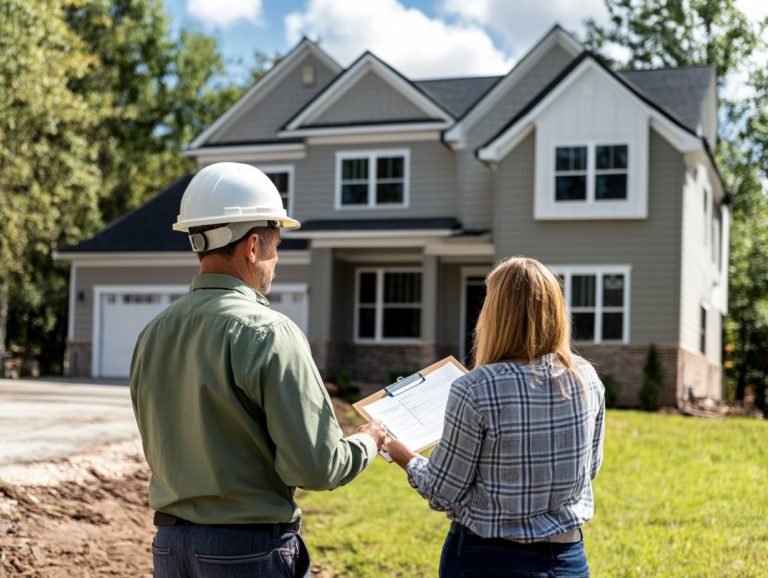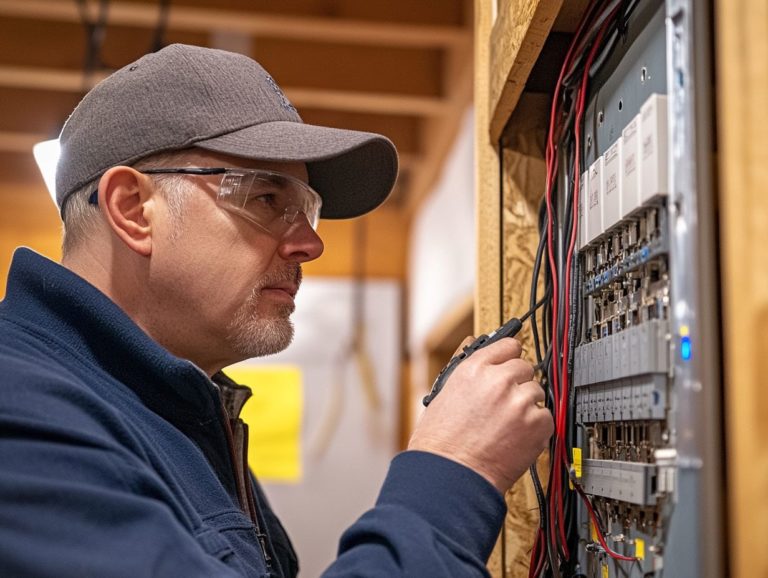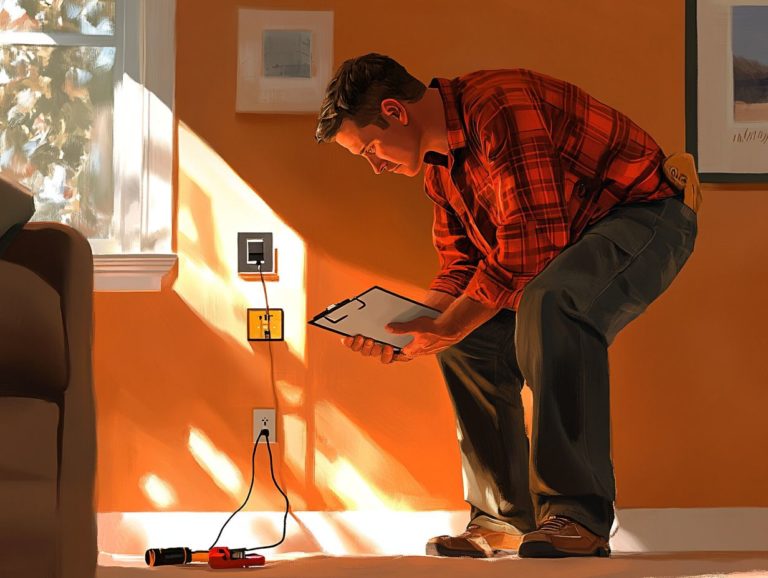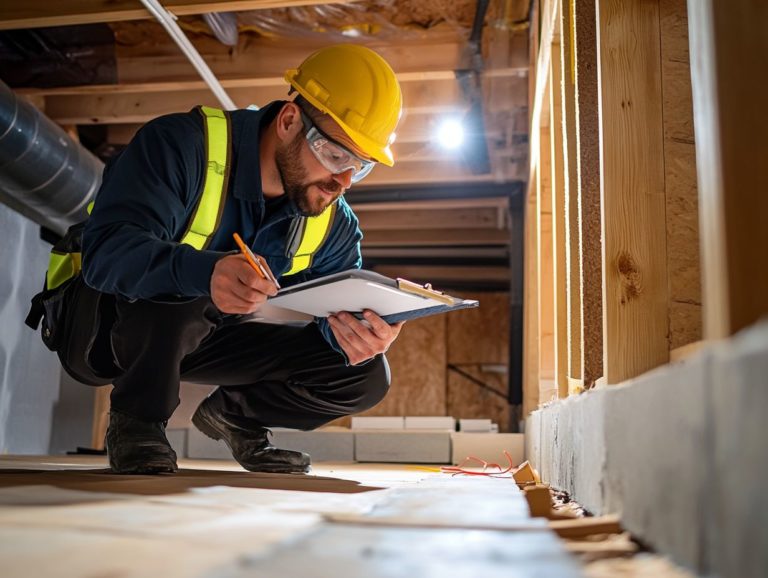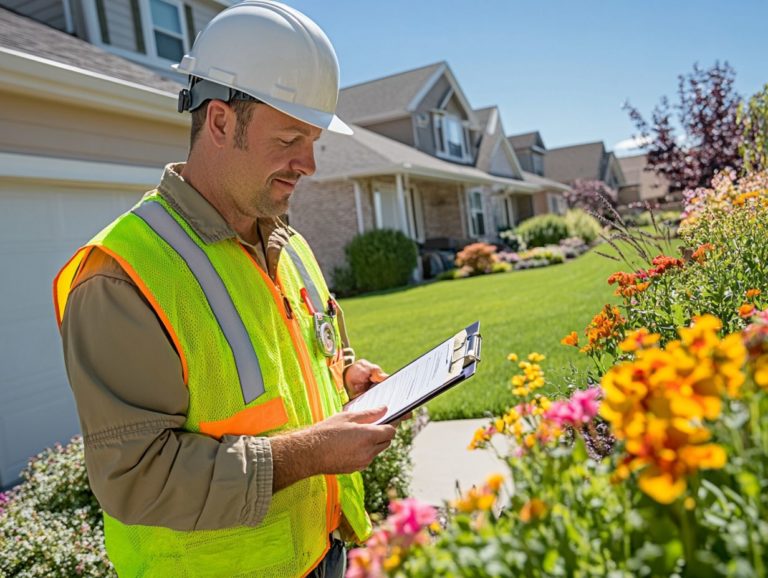How to Choose a Radon Inspector
Radon is a silent threat that may be lurking in your home, presenting serious health risks that often go unnoticed. Recognizing the importance of radon inspection is essential for safeguarding your family s well-being.
This guide will assist you in selecting a qualified radon inspector, detailing the vital certifications to seek and key questions to pose. You ll gain insight into what to expect during an inspection, how to interpret test results, and the necessary steps to take if elevated levels are detected.
Equip yourself with the knowledge needed to ensure your home is safe from this invisible danger.
Contents
- Key Takeaways:
- The Importance of Radon Inspection
- What to Look for in a Trusted Radon Inspector
- Questions to Ask Potential Inspectors
- Choosing a Reputable Radon Inspection Company
- The Inspection Process
- Interpreting Radon Test Results
- Addressing High Radon Levels
- Frequently Asked Questions
- Wondering what to look for in a radon inspector?
- Should I choose a radon inspector based on price?
- How can I ensure that a radon inspector is qualified and experienced?
- What type of testing methods should a radon inspector use?
- Do I need to be present during the radon inspection?
- How long does a radon inspection typically take?
Key Takeaways:
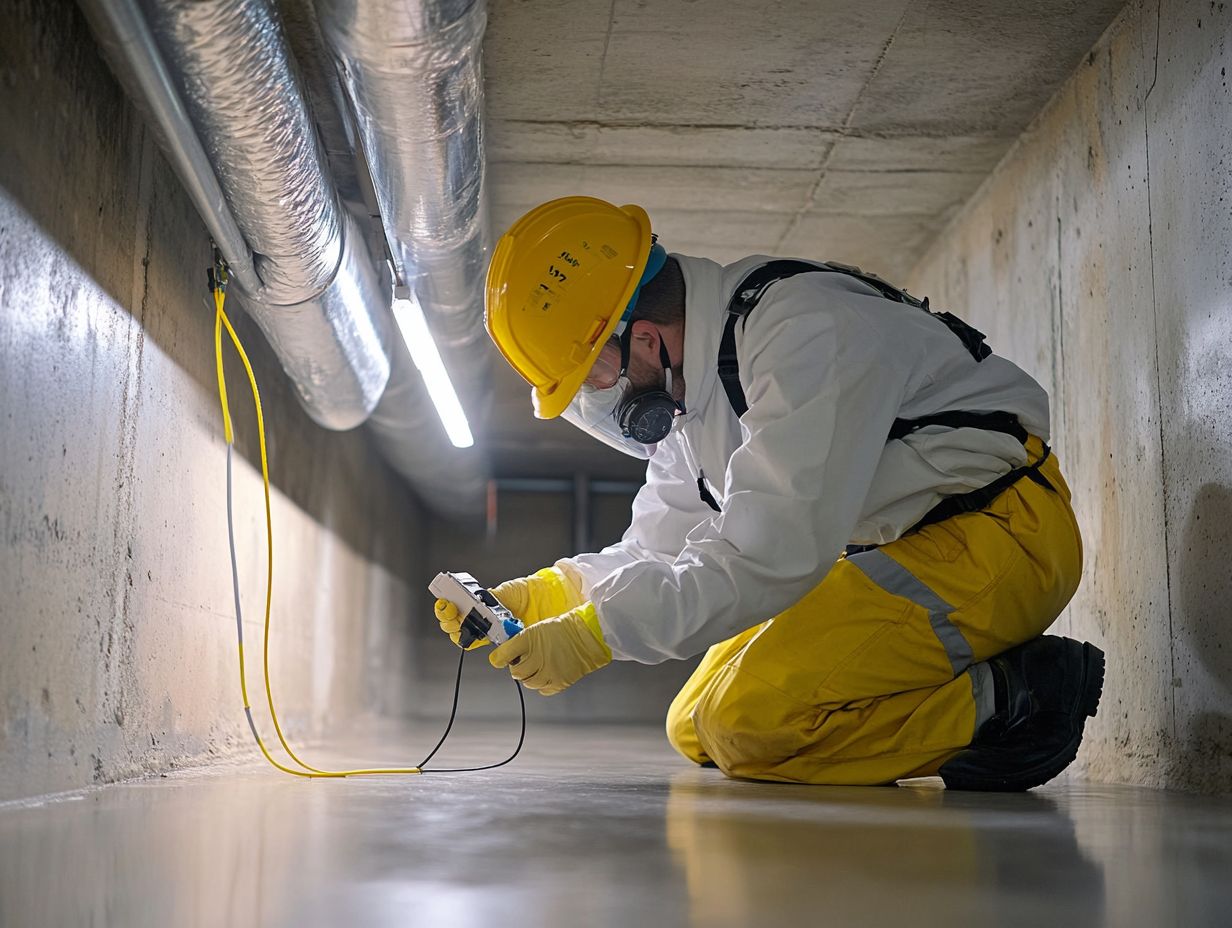
Choose certified and experienced radon inspectors to protect your home and family! When selecting an inspector, refer to guidelines on how to choose the right inspector for your needs and ask important questions about their qualifications and process. If high radon levels are detected, there are options for reducing radon levels that a reputable inspection company can help you navigate.
The Importance of Radon Inspection
Radon inspection is essential for creating a safe living environment. This colorless, odorless gas can accumulate in homes, particularly in basements and lower levels, posing serious health risks, including lung cancer.
The Environmental Protection Agency (EPA) has set guidelines regarding acceptable radon levels. They emphasize the need for homeowners to engage certified radon professionals for regular testing. Neglecting radon inspection can jeopardize health and diminish property values.
Prioritizing this inspection is a smart move for safety and investment.
Understanding the Risks of Radon Exposure
Radon exposure is one of the leading causes of lung cancer in non-smokers. It’s crucial to understand the risks associated with this hazardous gas, which comes from the natural decay of uranium in the earth.
Radon often seeps into homes through soil and water. It can accumulate indoors, reaching perilous levels. The EPA estimates that nearly 21,000 lung cancer deaths occur annually in the United States due solely to radon exposure.
As a homeowner, remain vigilant. Radon can infiltrate your living spaces through cracks and gaps in foundations, walls, and even well water.
Don’t wait! Testing for radon is essential now. It involves using straightforward kits that measure indoor levels over a designated period. If high levels are detected, effective strategies, such as enhanced ventilation and sealing cracks, can significantly reduce exposure and protect your health.
What to Look for in a Trusted Radon Inspector
When choosing a radon inspector, verify that the professional is certified and complies with the standards established by the National Radon Proficiency Program. Additionally, consider looking for how to choose the right inspector for your home to ensure you find someone with extensive experience in radon testing and reduction solutions.
This certification ensures that the inspector is well-versed in radon regulations, measurement techniques, and essential safety protocols. By ensuring these standards, you are taking an important step to accurately assess radon levels and safeguard the health of your household.
Certifications and Experience
Certifications from esteemed organizations like the National Radon Safety Board signify that you are working with a professional who has undergone rigorous training in radon inspection and reduction practices. This training equips them with the expertise to effectively use radon test kits and monitoring devices for accurate radon assessments.
These certifications cover a comprehensive array of training modules, from the fundamentals of radon science to effective measurement techniques and cutting-edge reduction technologies. This extensive education enables radon professionals to interpret test results accurately, which is vital for safeguarding public health.
Their practical experience in conducting radon measurements enhances their ability to deliver precise assessments. By employing certified radon test kits, they ensure the accuracy of their findings, making sure any recommendations are grounded in reliable data. This approach not only fosters confidence in their services but also prioritizes safety.
Questions to Ask Potential Inspectors
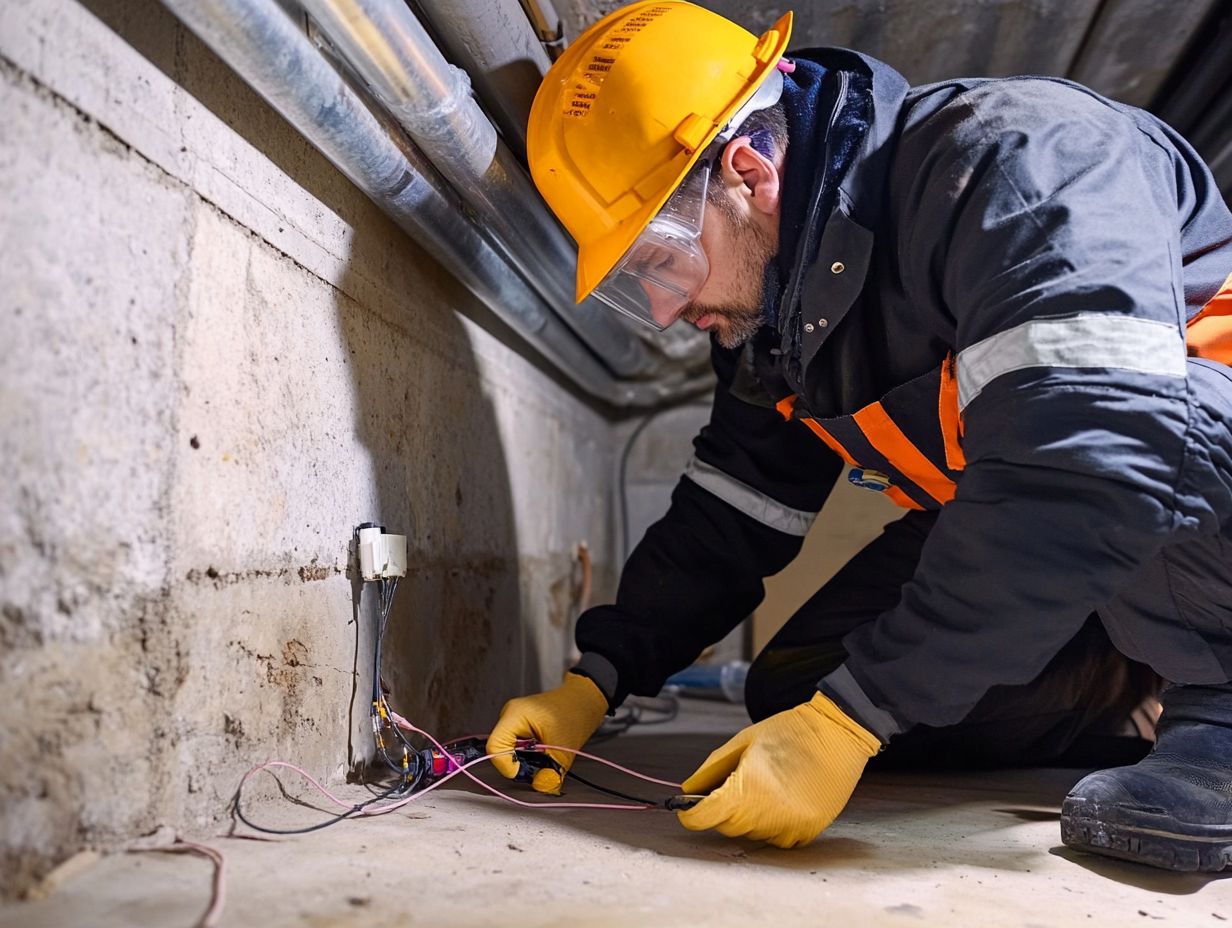
When you interview potential radon inspectors, ask targeted questions that reveal their expertise and the quality of their services, as well as consider referring to how to choose the right home inspector for you.
This approach helps you assess their guarantees regarding effective radon reduction and compliance with safety standards.
Key Inquiries to Make Before Hiring
Ask specific questions about their experience with radon testing. Inquire about the mitigation systems they recommend and how well they adhere to radon safety measures set by the Environmental Protection Agency.
You need to understand how the contractor conducts radon testing, including the devices they use and the testing duration. Inquire about their familiarity with local radon regulations and building codes, as these can significantly influence the mitigation process.
Understanding the radon reduction methods they employ, whether soil suction, drainage systems, or sealing cracks, will give you valuable insight into their effectiveness.
Ask about post-mitigation monitoring and safety checks to ensure long-term compliance, giving you peace of mind as a resident.
Choosing a Reputable Radon Inspection Company
Research radon inspection companies thoroughly. Look into their credentials, read customer reviews, and check their compliance with radon regulations to ensure you choose the right inspector for your property.
This diligence ensures that the radon professionals you choose are well-equipped to deliver comprehensive radon services and help you understand how to choose the best home inspector near you for accurate testing results.
Researching and Comparing Companies
When researching and comparing radon inspection companies, consider their array of radon services and the testing kits they utilize, as well as how to choose the right home inspector for your property.
Evaluate their pricing structures to guarantee you’re receiving true value for your investment. Seek transparency in costs and watch for potential hidden fees that could catch you off guard.
Customer experiences are pivotal in assessing the reliability of these companies. Reviews and testimonials offer valuable insights into their professionalism and effectiveness.
Understanding the specific radon solutions available, such as passive or active ventilation systems, will help you gauge their efficacy in managing radon levels, ensuring a safer living environment for you and your family.
The Inspection Process
The radon inspection process carefully examines your property. Professionals use special radon measurement tools to detect levels accurately.
This enables them to identify the necessary strategies to ensure your safety and peace of mind.
What to Expect During a Radon Inspection
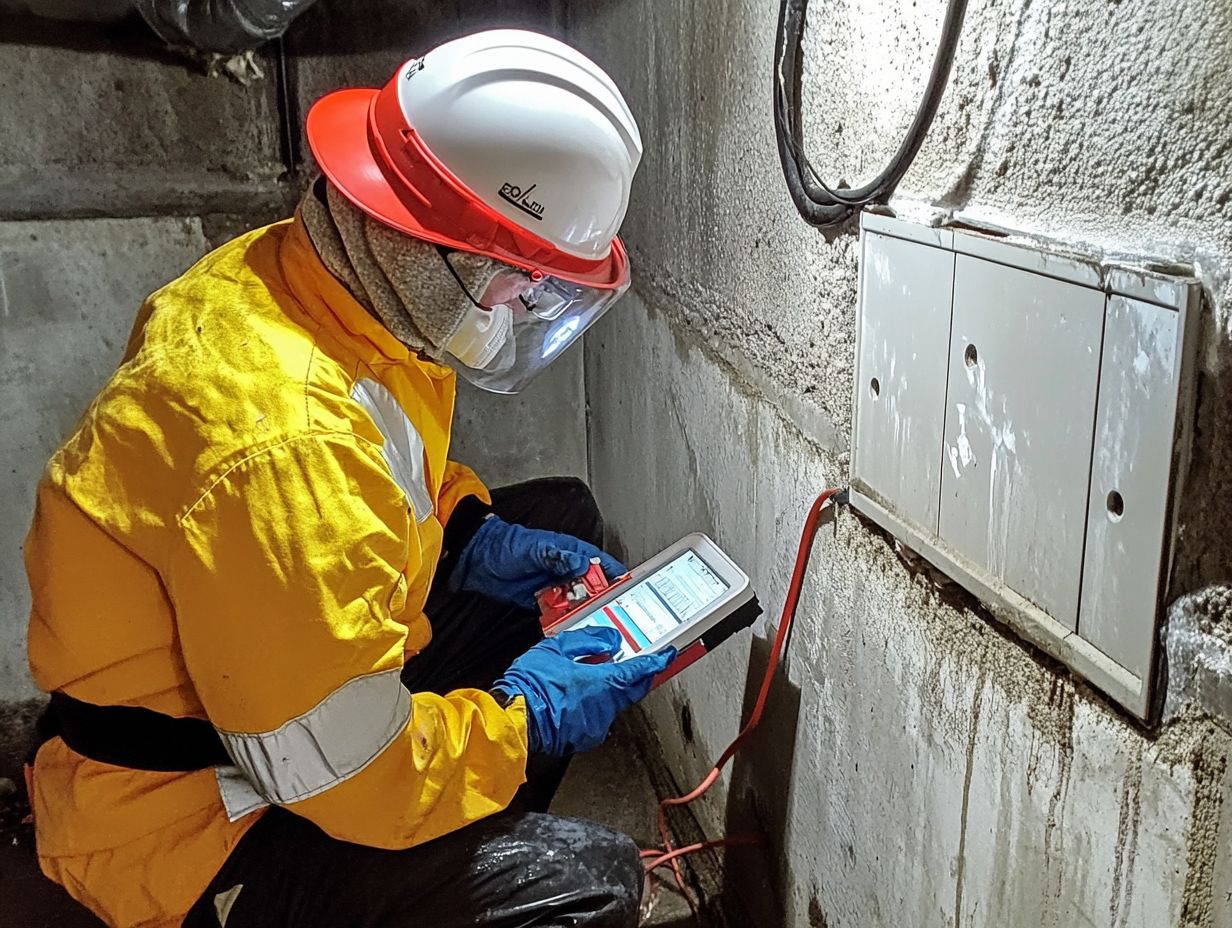
Qualified radon professionals will assess your property thoroughly. They’ll measure radon gas levels in areas like basements and crawl spaces where radon tends to gather.
This evaluation typically spans from 48 hours to several days, depending on the testing method used. Expect inspections covering various locations within your home, including living spaces, attics, and the foundation for a comprehensive analysis.
The radon measurements may involve continuous monitors or short-term testing kits, each offering insights into daily fluctuations in radon levels. Understanding the implications of these results is vital.
If elevated radon levels are detected, consult a certified mitigation specialist to discuss the necessary steps for remediation, ensuring a safe living environment for you and your family.
Interpreting Radon Test Results
Interpreting radon test results helps you decide what actions to take if radon levels exceed EPA guidelines.
These guidelines specify a safe level of radon in homes to help mitigate health risks effectively.
Understanding the Numbers and Next Steps
Understanding the numbers from your radon test results is crucial. If your radon levels exceed 4 pCi/L, you must implement ways to reduce radon levels to minimize exposure and create a safer living environment.
Addressing elevated radon levels is essential, as prolonged exposure can lead to serious health risks, including an increased likelihood of lung cancer. Once you’ve identified concerning readings, consider various mitigation strategies, such as installing a radon reduction system or improving ventilation in affected areas.
Continuous monitoring of radon levels is essential, given that environmental conditions can shift. Effective radon testing kits offer peace of mind and enable you to track fluctuations in radon concentrations over time.
By taking these proactive measures, you can significantly enhance the healthfulness of your indoor atmosphere.
Addressing High Radon Levels
Addressing elevated radon levels is crucial for your health. This often necessitates the installation of a radon mitigation system. Such a system vents radon gas safely away from your living spaces, ensuring your long-term safety and adherence to radon regulations.
Options for Mitigation and Prevention
When it comes to safeguarding your home from radon, you have several powerful options. One standout method is sub-slab depressurization, a technique that pulls radon gas from under your home, ensuring you breathe easy. Regular testing is vital to maintaining long-term safety.
You might also consider soil suction systems and block wall ventilation:
- Soil suction systems utilize a fan to draw radon gas from beneath your foundation and vent it outdoors, effectively keeping harmful levels at bay.
- Block wall ventilation involves installing pipes within the walls to actively reduce radon concentration.
Each of these methods requires careful planning and installation by qualified radon professionals. They re crucial not just for implementing these systems but also for conducting ongoing assessments to maintain a safe living environment.
Regular checks are essential to ensure that radon levels stay within safe limits, underscoring the importance of proactive radon management.
Frequently Asked Questions
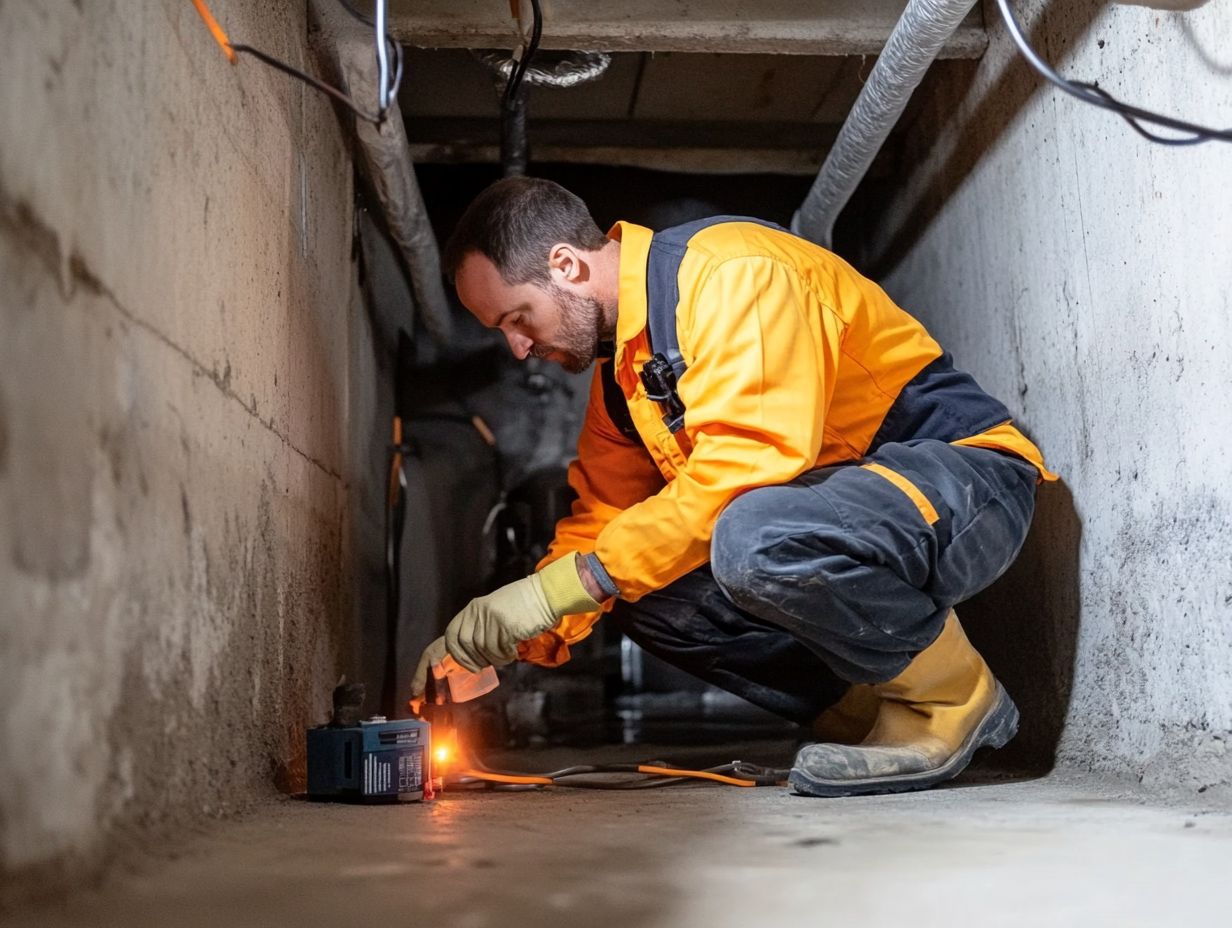
Wondering what to look for in a radon inspector?
When selecting a radon inspector, consider their qualifications, experience, and certifications. It’s also important to understand how to choose an inspector for your home to ensure they use reliable testing methods and have a good reputation in the industry.
Should I choose a radon inspector based on price?
No, the cheapest option is not always the best choice. Prioritize qualifications and reputation over cost, as a thorough and accurate inspection is crucial for your safety.
How can I ensure that a radon inspector is qualified and experienced?
Ask for their credentials and certifications, as well as references from previous clients. Checking online reviews and ratings is also a good idea to gauge their reputation.
What type of testing methods should a radon inspector use?
A reputable radon inspector should use approved and accurate methods, such as continuous radon monitors or charcoal canisters. To ensure you find the right professional, refer to how to choose the best home inspector for your needs. They must follow strict protocols and adhere to industry standards.
Do I need to be present during the radon inspection?
While it s not necessary for you to be present during the inspection, it s recommended to ask questions and discuss concerns with the inspector. This gives you a chance to understand the testing process and results better.
How long does a radon inspection typically take?
The length of a radon inspection can vary depending on the size of the property and the testing methods used. On average, it can take anywhere from 2-4 hours. However, prioritize accuracy over speed, so the inspector may take longer if necessary.


